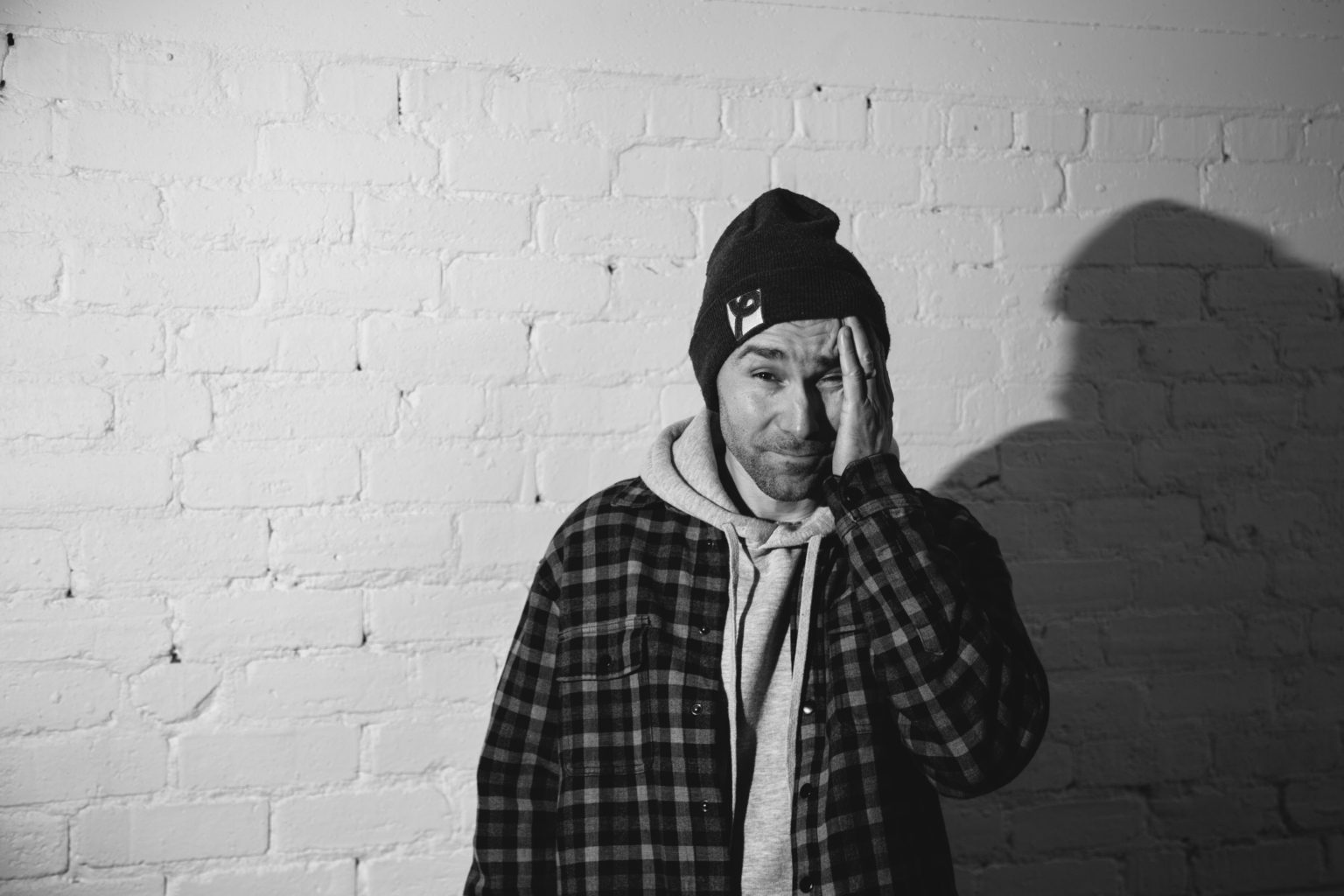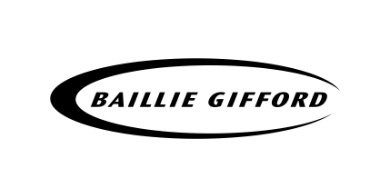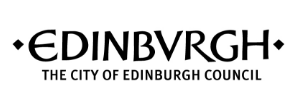Interview by Julia Sorensen
We originally published this March 2021 interview in our April newsletter, but it’s far too good to leave buried in there. The podcast episode he recorded in conjunction with this interview is out now.
What drives you as an artist?
An irrepressible compulsion to make stuff, which is probably quite universal across people’s reasons for making things. I make music and I write words because I can’t stop doing it, so I’m constantly trying to find reasons and excuses and outlets to do so.
What would you say your practice is for? What do you like to discuss and why? Do you think you have a responsibility to say certain things or not say certain things?
From a lyric perspective, I guess I’ve got multiple motives for writing, one of which is a real love for words and for playing with words. Other aspects we can talk about in terms of cultural commentary, and community interaction, and some of these other things… One thing for me which has come through engagement with hip hop for so many years is revelry in the sort of construction of words and the way words go together. I think hip hop and rap writing is like extreme sports poetry. Many aspects of hip hop involve taking a good thing and then obsessing about it and concentrating it to the extreme, partly because hip hop, I reckon, has a competitive culture. There’s a built-in element of hip hop that is about competition, and in a healthy way that competition, I think, has led to a sort of extreme sports poetry idea, y’know, where rhyme schemes are insanely complex. Rhyme is such a core element of rap, and the way rappers construct these sorts of rhyme matrices of internal rhymes and chain rhymes and multisyllabic rhymes and how this matrix appears across the page… So the first thing I really love about writing is wordplay itself and the beauty of language. The joy of playing with words. And then, some of the other reasons are the more cultural factors of telling stories, and sharing stories, and telling something that resonates with other people. Again, probably a lot of my impetus for writing comes from my experiences within hip hop culture of hip hop being a vehicle to tell stories, an opportunity to voice experiences that might not otherwise get heard, but also telling true, authentic stories about communities and spaces and places and all those things also inform some of the writing that I do.
Especially when it comes to hip hop and rap, do you feel yourself affected or motivated by external societal and/or political pressures?
Rap has always been a useful medium for providing alternative perspectives and alternative narratives. It’s a dichotomy because hip hop has a global culture but only works if it’s localised, so it’s both a world culture that in its authentic form can only be local. That’s a really interesting thing about how you practice it and how you create it. It’s always provided, from its inception as an African American cultural vehicle for talking about and representing experience, opportunities to challenge power structures and to provide alternative narratives and to repackage existing narratives and reposition the power structures as you go. Hip hop has an innate ability to do these things because of some of the cultural purposes it’s served since its beginning, so I think that’s why you see it being used as a socio-political tool, in Scotland and all around the world. It’s why you see, from Aboriginal Outback to Palestinian hip hop to somebody writing hip hop in a wee village in Scotland, the local aspect and the sort of challenge to mainstream narratives being quite a regular or recurring theme across all these different spaces and places.
What are you looking forward to about Push the Boat Out?
I’m excited about how radical it already feels, how rebelliously non-conformist it feels in its outlook and ideology. I’m excited hearing from Kevin and Jenny about what their plans are for it. I love the ideas they’ve mentioned in terms of the chess sort of games taking place between poets and discussions—I like the idea of unusual and less-tread paths and structures, around anything, and I think the unusual circumstances and spaces that have been created sound really exciting. I’m excited to see how much rap and hip hop, obviously, from my perspective, seems to be a part of that conversation, because I personally don’t distinguish between poetry and rap. I just like seeing what people are doing with words, so it’s nice to see that, from a historical perspective.
The cultural value, broadly speaking, of rap and hip hop isn’t always necessarily recognised, and I’m interested in why we ascribe cultural worth to one art activity over another, or even beyond art, why we ascribe more cultural value to some things than other things. So again, from a hip hop perspective, it’s very exciting to see that it’s clearly planned to be a part of an international poetry festival. Jenny and Kevin have such a track record of doing innovative, exciting, unusual things to a very high standard, so that in itself means that the boat’s being steered by two very capable folks. All those sorts of things are exciting. I’m also excited about the community aspects that we’ve had a blether about so far, and again I think that side of it’s so important, that we continually ask questions about who culture’s for and about why a lot of us feel that certain aspects of culture aren’t for us. Anything we can do to make that more accessible and inclusive is great.
World Poetry Day was 21 March and April is, at least in some places in the world (not technically the UK), poetry month. Having a poetry day or a poetry month is a pretty mainstream way of recognising things. Do you think that that’s important? Are there limitations to that?
I didn’t know any of the poetry days or months were coming up, to be perfectly honest, but I’m very much in favour of them. I think all these days are important. Whether it’s a music release, whether it’s a poetry day, International Women’s Day… We can look at positives and negatives of these things, you can say we should be highlighting these things every day—and yes we should—but it doesn’t do any harm when we can have an opportunity to speak specifically about it, and if it means it gets everybody else talking about it then great, y’know? And then if it’s an excuse to share your favourite poetry, or something that’s resonated with you, and then for that day it’s amplified by the fact that it’s being talked about more broadly, it reaches a new audience.
From an artist perspective it’s great as well, isn’t it? Because it does give you a reason to post beyond what sometimes seems to people as just repeatedly trying to share your work. I think we’re in a really difficult place at the moment with artists trying to share their work, because we rely almost exclusively on digital and social media means of doing it. We’re all choked by pay-only ways of reaching an audience. The idea of democratised online means of reaching people has sort of gone, and mainstream corporations and large multinationals have regained control of how you can share and reach an audience. Democratisation is a myth again, I think. What we’re left with is smaller and smaller groups of people on your timeline who potentially just see this repetitive sharing of work, which leaves people feeling jaded and oversaturated and all that sort of stuff. So I think any time where there’s a larger movement around it, it gives you an opportunity as an artist to share your work [more widely] and that’s a great thing.
Tell us about recent projects you’ve worked on. Got any shameless plugs to offer?
Hunners. Hah! Yes, particularly two projects. One that I’ve worked on as Solareye in collaboration that came out recently which is Steg G’s new album. I’ve been fortunate to work with Steg on various occasions. He’s a phenomenal music producer, great composer, and really important member of the broader hip hop community for the work that he does in community projects and radio and all sorts of things, and with great artists. This was the second large-scale project we worked on. It’s called “Live Today”. He worked with a series of MCs—myself, the Freestyle Master, Empress and CCTV—we each were given topics to write to in order to create one cohesive narrative across the record, although we didn’t individually know what the other artists were writing on, and then we sort of interpreted them as our own stories. I think it’s just a brilliant bit of work that he’s made. So that came out a couple a weeks ago, and we’re gonna do a live version of it end of April, so that’s just great to be involved in that. Yeah, it’s a brilliant bit of work he’s done.
The other major thing that I’ve personally been working on of late is the Stanley Odd album. That record has been four years in the making or more, and certainly in the last two or three years we’ve really spent a lot of time on it. We started releasing it in January 2020: we released a single, we planned to have a tour through Easter festivals, album out in September, another tour, then that obviously didn’t happen. None of it happened, but it made us have to think about a whole new way of releasing. Instead we’ve put out a new single every six weeks since last July, which has been great, because we’ve had an opportunity to focus on working with a different videographer for every single release. We’ve released seven singles with videos, and we’ve been able to work cohesively with one artist, Matt Sloe, who’s done all the art for all those. You would never normally get that amount of time to focus on so many songs on a record, y’know? End of last year we were thinking, right, we know we’re gonna put the album out in April, so how do we do this? We’ve been fortunate to put out everything so far that we’ve ever released on vinyl and CD, and it’s great to see folks respond to the vinyl and the physical formats, but I was thinking, how many people actually listen to the [physical] record and for how many people is it about having a physical thing to look at, an artifact? So we decided to try something a bit radical and different. Instead of releasing on vinyl, we released a 56-page full colour book that goes with the album, where you get to the certain pages and it says STOP GET YOUR MUSIC NOW, it’s got a QR code, you go there, you get music, and the idea is that it recenters the whole listening experience. Instead of being about that in-and-out on Spotify with mixes and tracks and stuff, it recenters it—it’s got all the lyrics, it’s got handwritten annotations, it’s got artwork, photographs that folks have sent us of their Stay Odd art, and it’s supposed to be a navigational companion for talking you through the record.



